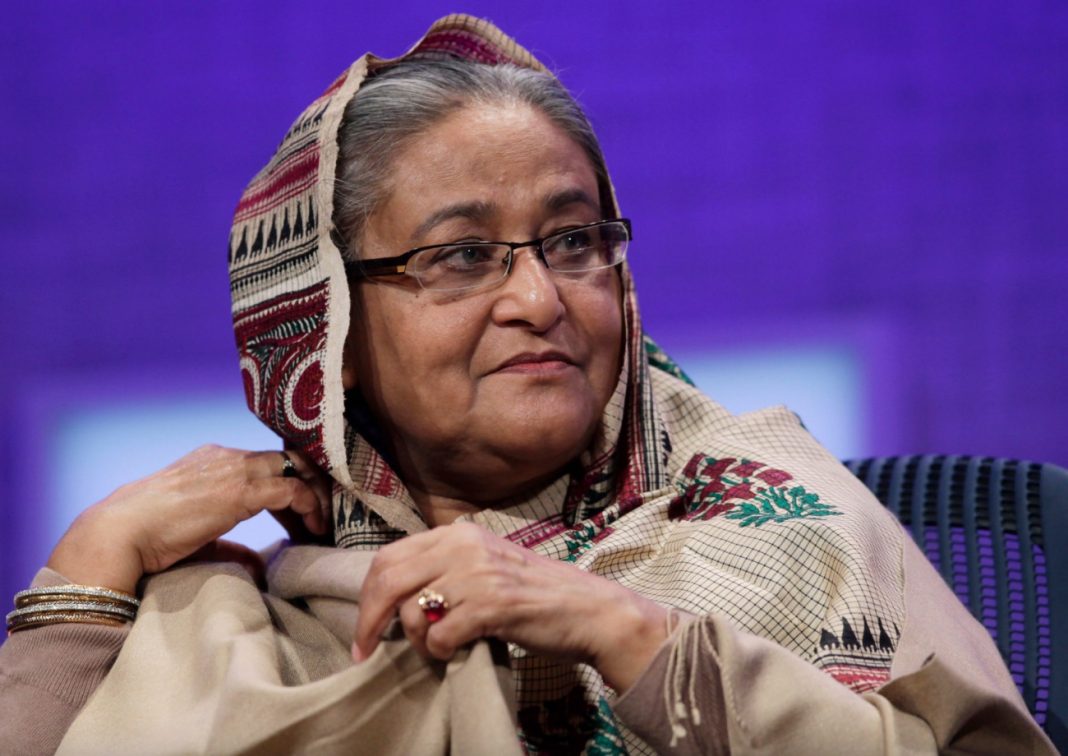DHAKA, Bangladesh — Sheikh Hasina, Bangladesh’s ousted prime minister, was sentenced to death in absentia on Monday, November 17, 2025, after a months-long trial that found her guilty of ordering a violent crackdown on a student-led uprising last year, a ruling that has plunged the country into renewed political turmoil.
The verdict, delivered by the International Crimes Tribunal — Bangladesh’s domestic war crimes court — drew cheers and applause inside a packed courtroom, where families of victims were present.
Outside, crowds reacted with a mix of celebration and prayer, with some people falling to their knees as the sentence was announced.
Hasina, who fled to India in August 2024 at the height of the protests against her administration, dismissed the ruling in a statement, calling the tribunal a “rigged tribunal”.
She said the court was “biased and politically motivated”, adding: “In their distasteful call for the death penalty, they reveal the brazen and murderous intent of extremist figures within the interim government to remove Bangladesh’s last elected prime minister, and to nullify the Awami League as a political force.”
Judge Golam Mortuza Mozumder, who read out the judgment, said Hasina, 78, had been found guilty on three counts, including incitement, ordering killings and failing to prevent atrocities committed during the uprising.
“We have decided to inflict her with only one sentence, that is sentence of death,” he said.
The tribunal also handed a death sentence to Asaduzzaman Khan Kamal, former interior minister, who is believed to have also fled to India.
Following the ruling, Bangladesh’s foreign ministry called on India to extradite both individuals.
New Delhi said it had noted the verdict and would “engage constructively”, without offering further details.
The interim government, led by Nobel laureate Muhammad Yunus, described the judgment as a “historic verdict” but urged the public to remain calm.
“Any attempt to create disorder, chaos, or disturb public order will be dealt with strictly,” it said.
Tension has been high across Bangladesh in recent days. Police and paramilitary forces surrounded government buildings and the tribunal complex, while demonstrations flared in Dhaka.
At least 30 crude bombs were set off and 26 vehicles were torched nationwide in the days leading up to the ruling, though no casualties were reported.
The trial has unfolded against a backdrop of political upheaval ahead of elections scheduled for February.
Hasina’s son warned on Sunday, November 16, 2025, that unrest could follow if a ban on her Awami League participating in the polls was not lifted.
A United Nations report estimated that up to 1,400 people were killed between 15 July and 5 August last year, with thousands more injured — most by gunfire from security forces — during what became the most severe political violence since Bangladesh’s independence in 1971.
Prosecutors told the tribunal they had obtained evidence showing Hasina directly ordered lethal force against demonstrators.
She was represented by a state-appointed defence lawyer, who insisted the charges were baseless and sought her acquittal.
Yunus, addressing the nation after the verdict, said Bangladesh now faced a critical moment.
“The path ahead requires not just legal accountability but rebuilding trust between institutions and citizens,” he said.
The crisis has also dealt a heavy blow to the country’s garment industry, one of the world’s largest, which struggled during last year’s unrest.
With Hasina still in India and the political landscape deeply polarised, Bangladesh enters a period of uncertainty that is likely to shape the coming elections and the future of its fragile democratic order.







